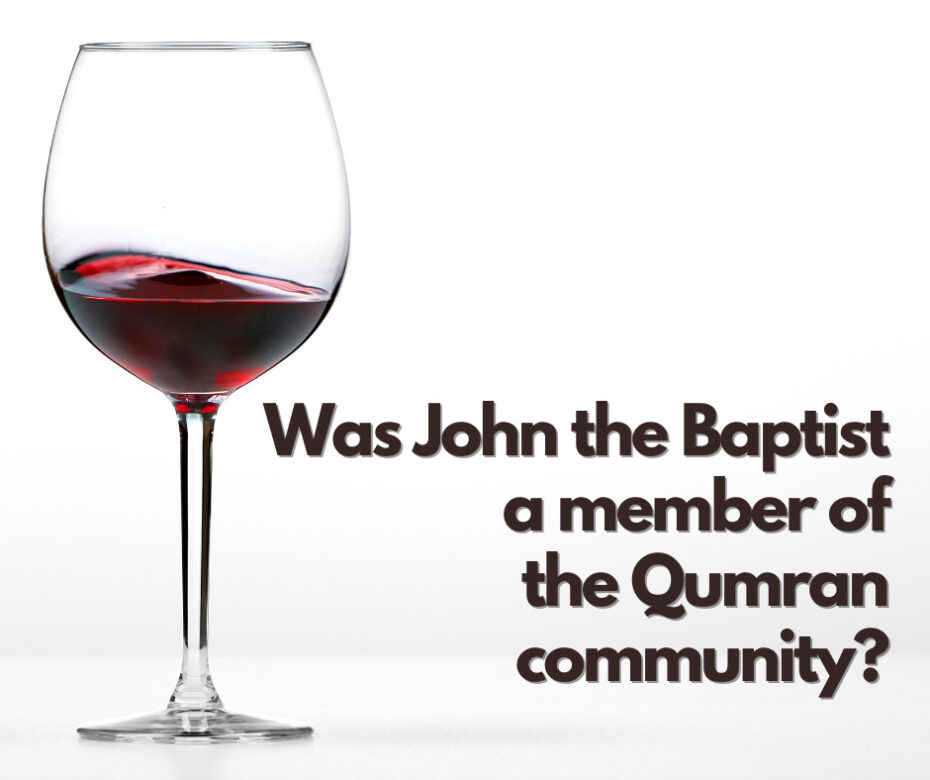When an angel of the Lord announced to Zacharias that he and Elizabeth would have a son, the angel also told him many details about the coming child. One was that this son, John the Baptist, would be a person who did not drink wine or strong drink. Why was that the case? Why did it need to be stated?
In the past, I have heard a number of reasons for this statement. A few have said that drinking alcohol is a sin; therefore, John would not engage in such activity. But that does not fit the Scriptures. Drinking alcohol was not a sin in the OT.i Jesus’ first miracle was turning water into wine. The Lord Jesus often drank wine with His disciples. Besides, if it was sinful, why would the angel need to say that he would not drink? Wouldn’t it be understood that a great prophet of God would not do something sinful?
A better reason is that the angel said this because John would be a Nazarite. Nazarites took a vow not to drink alcohol. It pictured a deeper level of devotion to God. While the common Jewish man drank alcohol, this prophet would not. The angel was saying that John would be completely dedicated to the task he was given.
Related to this, some have suggested that John was a member of the Qumran community of Essenes who lived around the Dead Sea. They did not drink alcohol. John began his ministry in the desert because that is where the Essenes lived. I must admit, that seems very fanciful to me. In fact, I don’t believe it. Why would a great prophet of God be a part of a community that did not believe Jesus was the Christ?
My daughter Kathryn has suggested another reason for the angel’s saying that John would not drink alcohol. Her suggestion makes a lot more sense. Later in Luke, Jesus talks about John the Baptist. When He does, He mentions many of the same things the angel said to Zacharias when the angel spoke about John’s birth.
We can compare the two passages. The first is found in Luke 1:13-17. The second is found in Luke 7:26-34. The common details in the two passages include: the name John, children, great/greater, wisdom, preparing the way of the Lord, and prophet/Elijah. Finally, in both passages it is mentioned that John would/did not drink.
The reason for Jesus’ bringing up the point that John did not drink is interesting. The Lord is talking about the religious leaders—the Pharisees and scribes—who, by and large, did not believe what John said (7:30). Christ rebukes those who rejected the message that John proclaimed, and that Christ was also now proclaiming.
One of the reasons the Lord so strongly rebukes them is that while, on the one hand they criticized John because he came to them without drinking, on the other hand they criticized the Lord because He drank and ate with tax collectors. The religious leaders rejected John because he did not eat or drink wine. They rejected Christ because He did. They were offended by John’s way of life. They were offended by the Lord’s way of life. This was the case even though John’s behavior and the Lord’s were polar opposites.
This, of course, points out the irrationality of the reasons given for rejecting the preaching of both John and the Lord. The leaders were lying about why they did not believe. They were only coming up with excuses to justify their unbelief. The evidence that Jesus was the Christ was overwhelming. It was right before their eyes. John had pointed them to Him.
Why didn’t John drink wine or strong drink? There may have been other reasons, but it seems that one reason is clear. It was because of the grace of God. The Lord was reaching out to the nation. He sent John, His forerunner, to them. Christ did not want irrelevant, immaterial, things to keep the people from listening to him. Perhaps some would be turned off if a prophet sent from God drank wine. His refusal to do so would attract some to his message.
The Lord, on the other hand, was different. If He followed John’s austere lifestyle, the common man and tax-collector would be put off. Both John and Jesus proclaimed the same message. The Lord wanted all to hear and did not want the eating and drinking of either John or the King to keep anybody from listening to what they had to say.
The reaction of the unbelieving religious leaders and those Jews who followed in their footsteps shows the unwillingness of some to listen and believe. John’s refusal to drink was an example of the grace of God reaching out to His people. Those who did not believe were simply looking for an excuse to justify their unbelief. But, as the Lord points out, their excuse was not a valid one.
__________
i Nor is drinking alcohol a sin in the NT. Getting drunk is a sin (Eph 5:18). But drinking wine or other alcoholic beverages is not forbidden in the NT.


